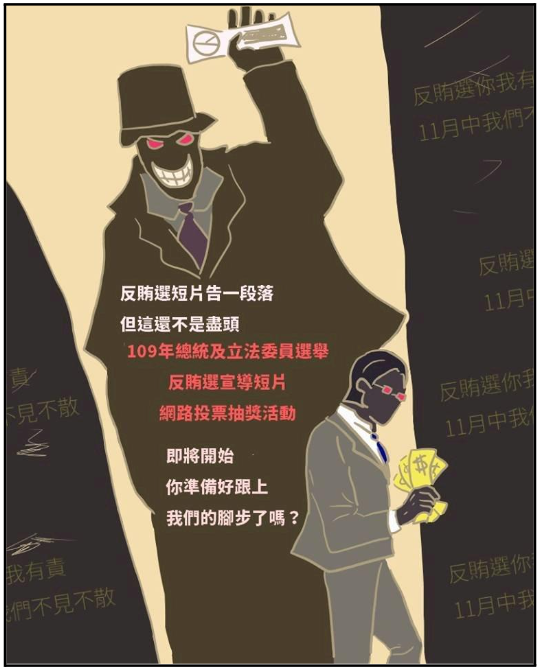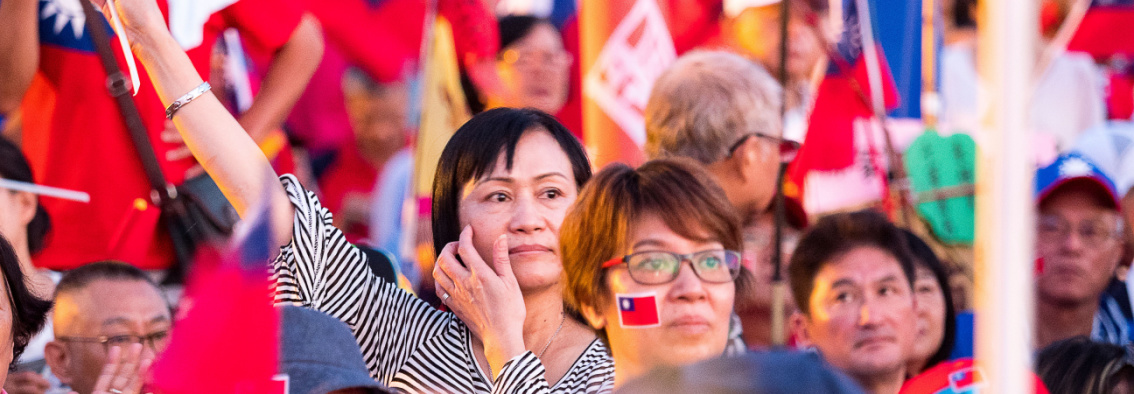Taiwan’s Ministry of Justice Investigation Bureau (MJIB, 法務部調查局)—the principal domestic intelligence agency and the equivalent of the Federal Bureau of Investigation (FBI) in the United States—recently revealed that it has launched an investigation into how China may be attempting to influence Taiwanese small and medium-sized enterprises (SMEs) with investments in the People’s Republic of China (PRC), with the apparent goal of laundering money for the purpose of manipulating Taiwan’s upcoming national elections. According to publicly available reporting about the ongoing investigation, China is currently targeting a variety of businesses, and specifically ones located in Taichung and Changhua. Some SMEs are suspected of taking Chinese capital in exchange for funding or assisting specific political candidates from those localities in the upcoming elections. The most recent revelation by the MJIB about the new investigation follows a string of recent reports that indicates how the PRC is ramping up its influence operations on Taiwan to sway the upcoming election in its favor.
Shift from Enticement to Coercion
According to the reports, China is using threats of tax inspections and other fines for supposed violations of Chinese regulations on these businesses to coerce and influence them into supporting pro-unification political candidates. This appears to signal a shift away from Beijing’s traditional methods of relying more on enticements, such as providing direct funding, in-kind entertainment, or travel. Instead, the PRC seems to be moving to a more coercive approach to exert its influence.
Indeed, these revelations are consistent with the findings of an in-depth investigative report conducted in 2018 by Al Jazeera. As part of this exposé, a leader of a united front group in Taiwan, Zhang Xiyue (張秀葉), was caught on film explicitly stating:
Whoever gets caught taking money from China will be put in jail […] [however] it’s not a problem if it’s money from a Taiwanese businessman. If you’re like our Chief who runs a business in China and uses the money for the Alliance [Chinese Patriotic Alliance Association], it’s no one else’s business. Authorities in China know which businesses support unification. They’ll do their best to make sure you don’t lose money.
A former political candidate who ran for Taipei City Council on the China Democratic Progressive Party’s (CDPP, 中國民主進步黨) ticket in 2018, as well as a member of the Chinese Patriotic Alliance Association (CPAA, 中華愛國同心會, also known as the Concentric Patriotism Alliance), Zhang was indicted and then sentenced for illegally receiving and using funds from China for political purposes. However, she fled to China before authorities could take her into custody.
Political donation laundering schemes are very complex matters for authorities in Taiwan to investigate. Persons and businesses involved in political donation schemes can launder illicit cash flows in multiple ways under the guise of normal business and commercial exchanges. While there are laws in place that put a cap on how much an individual and businesses can contribute to a political campaign or are required to publicly disclose, such as the Company Act (公司法) and the Political Donations Act (政治獻金法), these can be circumvented. [1] For instance, if an individual exceeds the limit of political donations, they can simply redirect the funds through other persons or businesses.
Further complicating investigators’ effort to uncover illegal political contributions is the fact that Chinese investigators reportedly—but not surprisingly—will not cooperate with Taiwan’s investigators on such matters. As a result, even if there are credible leads, it is difficult for prosecutors in Taiwan to collect the necessary evidence, as doing so would require access to information available only in the PRC.
Trends in Illegal Political Donation
Vote-buying and illegal political contributions are not necessarily new phenomena in Taiwan’s politics, as this MJIB video cautioning against vote-buying schemes in 2022 reveals.
In the lead-up to the nine-in-one local elections held in November 2022, the MJIB initiated the “2022 Year Pre-election Detection of Illegal Financial Flows” (2022年度選前查緝不法金流) campaign to “prevent foreign illegal funds from flowing into Taiwan through underground channels.” The agency revealed that:
[T]here had been 1,430 electoral bribery cases, of which 564 cases have been investigated, 162 cases of the main suspects were placed on bail, 55 cases were detained, the candidates themselves were detained in 27 cases, and another 86 cases were transferred. The detainees included two candidates for township chief, seven candidates for county and city councilors, nine candidates for township representatives, and nine candidates for village chief.
Another interesting feature of these illegal political donation schemes is that the cash flow was reportedly coming in not only from China but also from Southeast Asian countries, including Vietnam. These funds were reportedly often routed through legitimate commercial enterprises, human resources companies, or third-party payment companies. In the past, the MJIB has also revealed that some people received funding from the Chinese Communist Party’s (CCP, 中國共產黨) Taiwan Affairs Office (TAO, 國務院台灣事務辦公室) through underground channels, in exchange for assisting specific candidates through bribery or for conducting espionage in Taiwan. In response, the MJIB has suggested that it could apply the “Anti-Infiltration Act” (反滲透法), passed as a law in 2020.

Image: A promotional graphic from an MJIB-produced short film warning about the dangers of vote buying in Taiwan’s elections. (Image source: Radio Taiwan International)
Enforcement of the Anti-Infiltration Act
A key legislative accomplishment of President Tsai Ing-wen (蔡英文) and the ruling Democratic Progressive Party (DPP, 民主進步黨), the Anti-Infiltration Act—which came into force on January 17, 2020—is designed to prevent the CCP from infiltrating Taiwan’s central and local elections. Along with the National Security Act (國家安全法) and the National Intelligence Work Act (國家情報工作法), among other legislations, the framework is collectively known as the “Six National Security Acts” (國安六法).
Taking their cue from Australia’s robust foreign interference laws, lawmakers from the ruling party began proposing draft legislation such as the “CCP Agent Act” (中共代理人法案) and “Overseas Influence Transparency Act” (境外勢力影響透明法案境外勢力影響透明法案) as early as 2018. These bills eventually merged in 2019 into the Anti-Infiltration Act, which was intended to regulate the influence of “foreign hostile forces” in Taiwan’s electoral process. However, critics, particularly from the opposition Kuomintang (KMT, 中國國民黨), worried that the law would affect normal and legitimate cross-Strait exchanges, while businesses were concerned that they could be “smeared” due to the alleged vagueness of the law.
The new legal authority was applied for the first time in the “nine-in-one” elections in November 2022, though only in two known cases. One of the cases involved a bribery scheme, in which a political candidate for a local office in Taipei City received 6,000 doses of COVID rapid screening tests from the Taiwan Affairs Office of Pingtan Comprehensive Experimental Zone (平潭綜合實驗區台灣事務工作部) free of charge, which she then distributed to voters. In another case, a member of a hometown association in Taipei City was suspected of accepting funds from the PRC TAO to sponsor a certain political party’s campaign activities.
Conclusion
As Taiwan readies for the 2024 national elections, there is little doubt that Beijing will pull out all the stops in an attempt to influence the election in its favor. For its part, Taipei appears to be gearing up for a battle that has already begun and marshaling resources to defend against China’s illicit influence campaign, and the latest revelation of the investigation itself may be an attempt to deter these businesses from interfering in Taiwan’s elections on China’s behalf.
The prosecutor-general of the Supreme Prosecutors’ Office (最高檢察署)—the equivalent of the attorney general at the Department of Justice—Hsing Tai-chao (邢泰釗), announced in March that a crack “advance deployment” team (提前部署) was being established. This would include the creation of a “prevent foreign forces from intervening in the election contact platform” (防止境外勢力介入選舉聯繫平台) and a “central crackdown on the election (online) gambling market contact platform” (中央打擊選舉(網路)賭盤聯繫平台).
These announcements followed a significant personnel shift within the Ministry of Justice to reorganize and mobilize resources and personnel to monitor the 2024 presidential election. Many of the new officials are reportedly experts in the investigation of national security, information communication, and investigation and prevention cases.
Given the activity of pro-unification united front groups in the United States, as evidenced by the recent anti-Taiwan protests organized by such organizations, Taipei should not only be watching money coming directly from China but also from such united front affiliates and entities in the United States. With concerns about growing Chinese interference in US elections, law enforcement officials in the United States and Taiwan should be working closer together to monitor the illicit flow of money that could be used to interfere in the two democracies’ electoral processes.
The main point: The recent announcement of an investigation into China’s efforts to influence Taiwanese businesses suggests that Taipei is taking such threats seriously. In the lead-up to the 2024 national elections, Taiwan will need to leverage its legal frameworks to prevent the PRC from infiltrating its democratic processes.
[1] According to Article 14: “Anyone may not contribute donations in the name of others or contribute a secret donation of more than NTD $10,000. Donations in cash of more than NTD $100,000 shall be paid by check or bank transfer. However, political donations contributed in one’s will are excluded from the restriction.”




